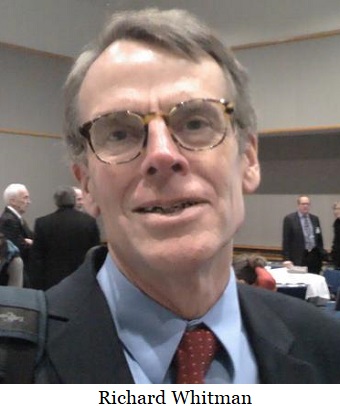$15 million for the Oregon Clean Vehicle Rebate Program
Editor's note: This is the fourth of a multipart series on HB 5202, the budget bill for the 2022 Legislative Session.
Gas prices has everyone concerned, but when the Whitehouse spokesperson was asked about the gas shortage, she responded with a grin, “we are obviously all in on meeting the President’s goals to get to 100 percent clean energy by 2035 and net zero carbons by 2050, and if you drive an electric car this would not be affecting you.†This statement comes after Elon Musk said that leaders of some countries have asked him to shut down satellite-based internet service and twitter inundated him to turn off all Tesla cars in Russia -- he refused. You may say that wouldn’t happen here, but we’ve already been
warned of rolling blackouts when
HB 2021 was passed during the 2021 Session. Can you imagine the control government would have if we all had electric vehicles? We already have smart meters on our homes.
As part of an overall statewide investment in climate, the budget adjustment bill,
HB 5202, includes two separate one-time General Fund appropriations of $15 million to be deposited into dedicated funds for programs at the Department of Environmental Quality, directed by Richard Whitman. The first $15 million was deposited into the Zero-Emission Incentive Fund to provide additional funding for the electric vehicle rebate program known as the Oregon Clean Vehicle Rebate Program. This program was established in
HB 2017 which passed during the 2017 Session and is funded from privilege tax revenue of approximately $12 million per year. With increased growth in the electric vehicle sector in recent years, the program is anticipated to be oversubscribed.

The second $15 million was deposited into the Medium and Heavy-Duty Electrification Fund, established in
HB 4139 passed in 2022, sponsored by Representative Dan Rayfield (D-Corvallis), as a new grant program supporting medium and heavy-duty zero-emission vehicle charging and fueling infrastructure projects. This one-time funding is intended to support grants to public or private entities for capital improvements and technical assistance to support the installation of charging infrastructure for zero-emission medium and heavy-duty vehicles. Projects will be awarded through a competitive request with priority given to projects located in communities disproportionately impacted by diesel pollution or are connected to proposed or existing transportation corridor projects, and projects that demonstrate available matching funds.
A corresponding $15 million of Other Funds expenditure limitation was provided to expend the monies in the fund. Included in this amount are anticipated costs for administrating the grant program, including $373,329 in the 2021-23 biennium for one position and potential contracting costs.
A D V E R T I S E M E N T

A D V E R T I S E M E N T
The DEQ and the Oregon Department of Transportation are directed to report back to the Joint Committee on Transportation by December 1, 2022, with an analysis of existing incentives available to support the transition to zero emission medium and heavy-duty transportation fleets. The agencies are further directed to research incentives offered in other states and to provide recommendations on expanding or creating incentives to support businesses in the transition to zero emission medium and heavy-duty vehicles. This effort should include analyses on incentives for both vehicles and electric charging or other fuel infrastructure.
Additionally, the DEQ was approved $517,000 General Fund to support laboratory operations across all three major program areas of Air Quality, Water Quality, and Land Quality. Also approved was $484,553 General Fund for information technology costs.
That’s $5.5 million dedicated in the short session to convince you to buy an electric vehicle and put your transportation needs in the hands of government.
--Donna Bleiler| Post Date: 2022-03-15 06:42:23 | Last Update: 2022-03-14 11:04:06 |







 The second $15 million was deposited into the Medium and Heavy-Duty Electrification Fund, established in HB 4139 passed in 2022, sponsored by Representative Dan Rayfield (D-Corvallis), as a new grant program supporting medium and heavy-duty zero-emission vehicle charging and fueling infrastructure projects. This one-time funding is intended to support grants to public or private entities for capital improvements and technical assistance to support the installation of charging infrastructure for zero-emission medium and heavy-duty vehicles. Projects will be awarded through a competitive request with priority given to projects located in communities disproportionately impacted by diesel pollution or are connected to proposed or existing transportation corridor projects, and projects that demonstrate available matching funds.
The second $15 million was deposited into the Medium and Heavy-Duty Electrification Fund, established in HB 4139 passed in 2022, sponsored by Representative Dan Rayfield (D-Corvallis), as a new grant program supporting medium and heavy-duty zero-emission vehicle charging and fueling infrastructure projects. This one-time funding is intended to support grants to public or private entities for capital improvements and technical assistance to support the installation of charging infrastructure for zero-emission medium and heavy-duty vehicles. Projects will be awarded through a competitive request with priority given to projects located in communities disproportionately impacted by diesel pollution or are connected to proposed or existing transportation corridor projects, and projects that demonstrate available matching funds.
